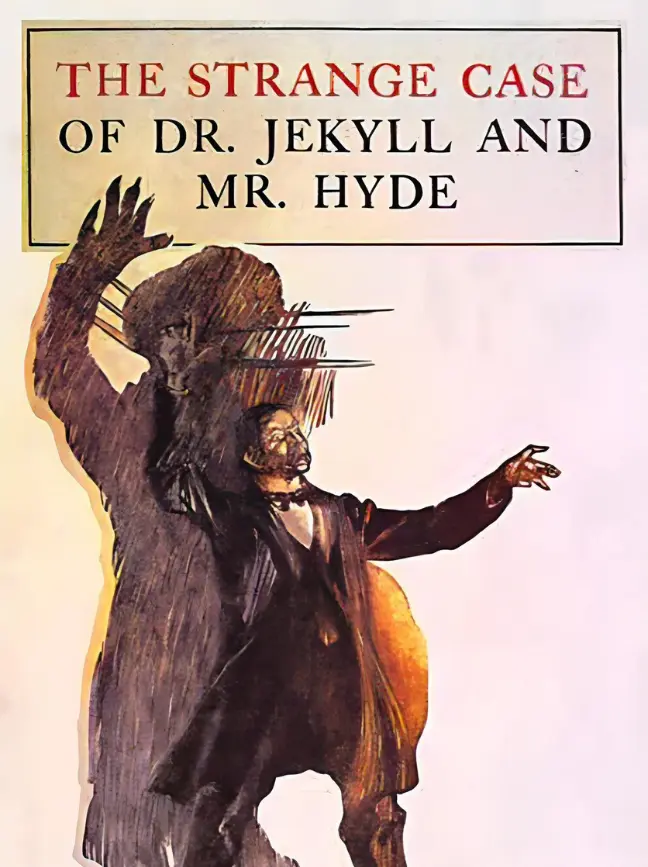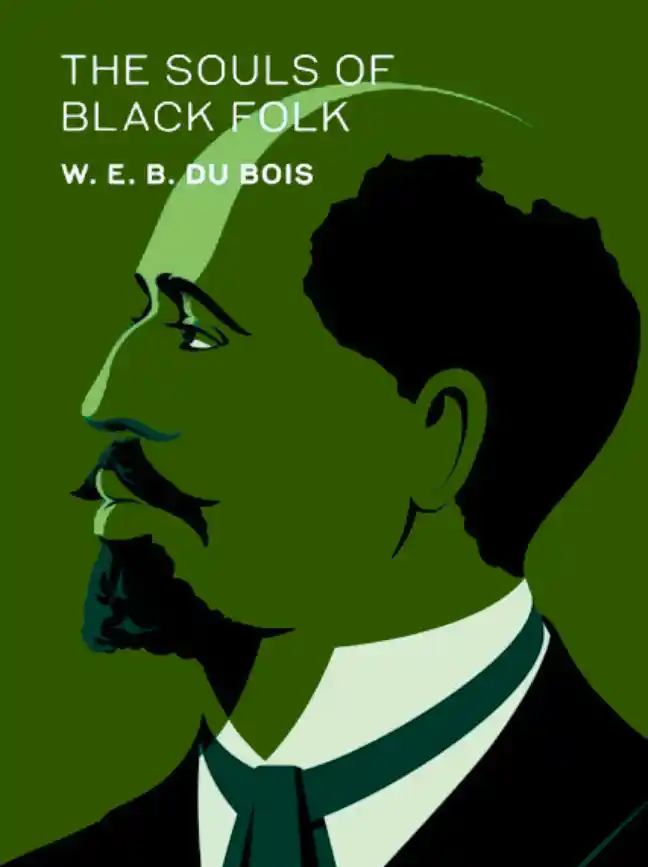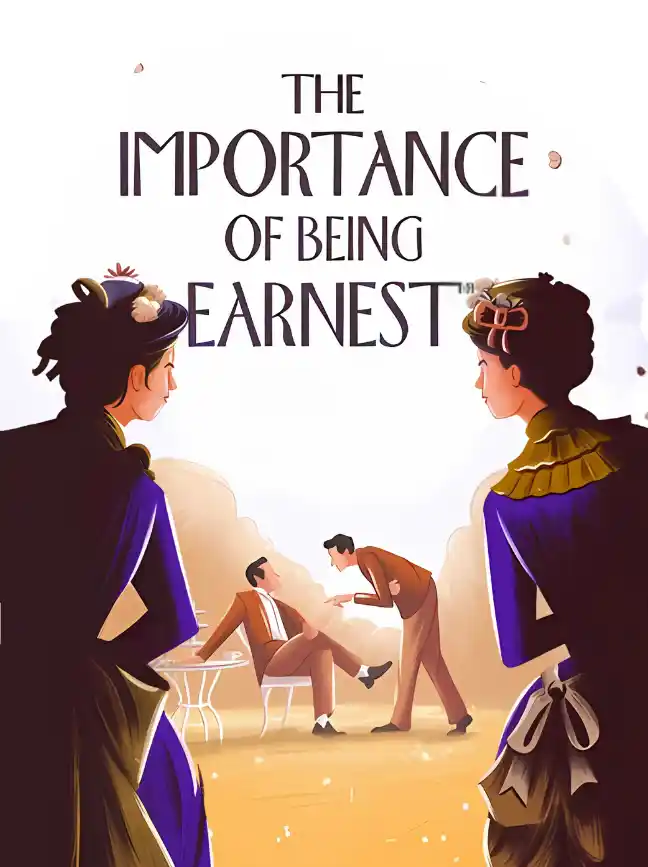The birth of Simon Arthur Henry Fitzranulph Basset, Earl Clyvedon, was met with great celebration. Church bells rang for hours, champagne flowed freely through the gargantuan castle that the newborn would call home, and the entire village of Clyvedon quit work to partake of the feast and holiday ordered by the young earl’s father.
“This,” the baker said to the blacksmith, “is no ordinary baby.”
For Simon Arthur Henry Fitzranulph Basset would not spend his life as Earl Clyvedon. That was a mere courtesy title. Simon Arthur Henry Fitzranulph Basset— the baby who possessed more names than any baby could possibly need—was the heir to one of England’s oldest and richest dukedoms. And his father, the ninth Duke of Hastings, had waited years for this moment.
As he stood in the hall outside his wife’s confinement room, cradling the squalling infant, the duke’s heart near burst with pride. Already several years past forty, he had watched his cronies— dukes and earls, all—beget heir after heir. Some had had to suffer through a few daughters before siring a precious son, but in the end, they’d all been assured that their lines would continue, that their blood would pass forward into the next generation of England’s elite.
But not the Duke of Hastings. Though his wife had managed to conceive five times in the fifteen years of their marriage, only twice had she carried to full term, and both of those infants had been stillborn. After the fifth pregnancy, which had ended with a bloody miscarriage in the fifth month, surgeons and physicians alike had warned their graces that they absolutely must not make another attempt to have a child. The duchess’s very life was in danger. She was too frail, too weak, and perhaps, they said gently, too old. The duke was simply going to have to reconcile himself to the fact that the dukedom would pass out of the Basset family.
But the duchess, God bless her, knew her role in life, and after a six-month recuperative period, she opened the connecting door between their bedrooms, and the duke once again commenced his quest for a son.
Five months later, the duchess informed the duke that she had conceived. The duke’s immediate elation was tempered by his grim determination that nothing—absolutely nothing—would cause this pregnancy to go awry. The duchess was confined to her bed the minute it was realized that she’d missed her monthly courses. A physician was brought in to visit her every day, and halfway through the pregnancy, the duke located the most respected doctor in London and paid him a king’s ransom to abandon his practice and take up residence at Clyvedon Castle temporarily.
The duke was taking no chances this time. He would have a son, and the dukedom would remain in Basset hands.
The duchess experienced pains a month early, and pillows were tucked under her hips. Gravity might keep the babe inside, Dr. Stubbs explained. The duke thought that a sound argument, and, once the doctor had retired for the evening, placed yet another pillow under his wife, raising her
to a twenty-degree angle. She remained that way for a month.
And then finally, the moment of truth arrived. The household prayed for the duke, who so wanted an heir, and a few remembered to pray for the duchess, who had grown thin and frail even as her belly had grown round and wide. They tried not to be too hopeful—after all, the duchess had already delivered and buried two babes. And even if she did manage to safely deliver a child, it could be, well, a girl.
As the duchess’s screams grew louder and more frequent, the duke shoved his way into her chamber, ignoring the protests of the doctor, the midwife, and her grace’s maid. It was a bloody mess, but the duke was determined to be. present when the babe’s sex was revealed.
The head appeared, then the shoulders. All leaned forward to watch as the duchess strained and pushed, and then…
And then the duke knew that there was a God, and He still smiled on the Bassets. He allowed the midwife one minute to clean the babe, then took the little boy into his arms and marched into the great hall to show him off.
“I have a son!” he boomed. “A perfect little son!”
And while the servants cheered and wept with relief, the duke looked down upon the tiny little earl, and said, “You are perfect. You are a Basset. You are mine.”
The duke wanted to take the boy outside to prove to everyone that he had finally sired a healthy male child, but there was a slight chill in the early April air, so he allowed the midwife to take the babe back to his mother. The duke mounted one of his prized geldings and rode off to celebrate, shouting his good fortune to all who would listen.
Meanwhile, the duchess, who had been bleeding steadily since the birth, slipped into unconsciousness, and then finally just slipped away.
The duke mourned his wife. He truly did. He hadn’t loved her, of course, and she hadn’t loved him, but they’d been friends in an oddly distant sort of way. The duke hadn’t expected anything more from marriage than a son and an heir, and in that regard, his wife had proven herself an exemplary spouse. He arranged for fresh flowers to be laid at the base of her funereal monument every week, no matter the season, and her portrait was moved from the sitting room to the hall, in a position of great honor over the staircase.
And then the duke got on with the business of raising his son.
There wasn’t much he could do in the first year, of course. The babe was too young for lectures on land management and responsibility, so the duke left Simon in the care of his nurse and went to London, where his life continued much as it had before he’d been blessed by parenthood, except that he forced everyone—even the king—to gaze upon the miniature he’d had painted of his son shortly after his birth.
The duke visited Clyvedon from time to time, then returned for good on Simon’s second birthday, ready to take the young lad’s education in hand. A pony had been purchased, a small gun had been selected for future use at the fox hunt, and tutors were engaged in every subject known to man.
“He’s too young for all that!” Nurse Hopkins exclaimed.
“Nonsense,” Hastings replied condescendingly. “Clearly, I don’t expect him to master any of this anytime soon, but it is never too early to begin a duke’s education.”
“He’s not a duke,” Nurse muttered.
“He will be.” Hastings turned his back on her and crouched beside his son, who was building an asymmetrical castle with a set of blocks on the floor. The duke hadn’t been down to Clyvedon in several months, and was pleased with Simon’s growth. He was a sturdy, healthy young boy, with glossy brown hair and clear blue eyes.
“What are you building there, son?” Simon smiled and pointed.
Hastings looked up at Nurse Hopkins. “Doesn’t he speak?” She shook her head. “Not yet, your grace.”
The duke frowned. “He’s two. Shouldn’t he be speaking?”
“Some children take longer than others, your grace. He’s clearly a bright young boy.” “Of course he’s bright. He’s a Basset.”
Nurse nodded. She always nodded when the duke talked about the superiority of the Basset blood. “Maybe,” she suggested, “he just doesn’t have anything he wants to say.”
The duke didn’t look convinced, but he handed Simon a toy soldier, patted him on the head, and left the house to go exercise the new mare he’d purchased from Lord Worth.
Two years later, however, he wasn’t so sanguine. “Why isn’t he talking?’ he boomed. “I don’t know,” Nurse answered, wringing her hands.
“What have you done to him?” “I haven’t done anything!”
“If you’d been doing your job correctly, he” —the duke jabbed an angry finger in Simon’s
direction— “would be speaking.”
Simon, who was practicing his letters at his miniature desk, watched the exchange with interest. “He’s four years old, God damn it,” the duke roared.”He should be able to speak.”
“He can write,” Nurse said quickly. “Five children I’ve raised, and not a one of them took to letters the way Master Simon has.”
“A fat lot of good writing is going to do him if he can’t talk.” Hastings turned to Simon, rage burning in his eyes.”Talk to me, damn you!”
Simon shrank back, his lower lip quivering.
“Your grace!” Nurse exclaimed. “You’re scaring the child.”
Hastings whipped around to face her. “Maybe he needs scaring. Maybe what he needs is a good dose of discipline. A good paddling might help him find his voice.”
The duke grabbed the silver-backed brush Nurse used on Simon’s hair and advanced on his son. “I’ll make you talk, you stupid little—”
“No!”
Nurse gasped. The duke dropped the brush. It was the first time they’d ever heard Simon’s voice. “What did you say?” the duke whispered, tears forming in his eyes.
Simon’s fists balled at his sides, and his little chin jutted out as he said, “Don’t you h-h-h-h-h-h- h—”
The duke’s face turned deathly pale. “What is he saying?” Simon attempted the sentence again. “D-d-d-d-d-d-d—” “My God,” the duke breathed, horrified. “He’s a moron.”
“He’s not a moron!” Nurse cried out, throwing her arms around the boy.
“D-d-d-d-d-d-d-don’t you h-h-h-h-h-h-hit”—Simon took a deep breath—”me.”
Hastings sank onto the window seat, his head dropping into his hands. “What have I done to deserve this? What could I have possibly done …”
“You should be giving the boy praise!” Nurse Hopkins admonished.”Four years you’ve been
waiting for him to speak, and—”
“And he’s an idiot!” Hastings roared. “A goddamned, bloody little idiot!” Simon began to cry.
“Hastings is going to go to a half-wit,” the duke moaned. “All those years of praying for an heir, and now it’s all for ruin. I should have let the title go to my cousin.” He turned back to his son, who was sniffling and wiping his eyes, trying to appear strong for his father. “I can’t even look at him,” he gasped. “I can’t even bear to look at him.”
And with that, the duke stalked out of the room.
Nurse Hopkins hugged the boy close. “You’re not an idiot,” she whispered fiercely. “You’re the smartest little boy I know. And if anyone can learn to talk properly, I know it’s you.”
Simon turned into her warm embrace and sobbed.
“We’ll show him,” Nurse vowed. “He’ll eat his words if it’s the last thing I do.”
Nurse Hopkins proved true to her word. While the Duke of Hastings removed himself to London and tried to pretend he had no son, she spent every waking minute with Simon, sounding out words and syllables, praising him lavishly when he got something right, and giving him encouraging words when he didn’t.
The progress was slow, but Simon’s speech did improve. By the time he was six, “d-d-d-d-d-d-d- don’t” had turned into “d-d-don’t,” and by the time he was eight, he was managing entire sentences without faltering. He still ran into trouble when he was upset, and Nurse had to remind him often that he needed to remain calm and collected if he wanted to get the words out in one piece. But Simon was determined, and Simon was smart, and perhaps most importantly, he was damned stubborn. He learned to take breaths before each sentence, and to think about his words before he attempted to say them. He studied the feel of his mouth when he spoke correctly, and tried to analyze what went wrong when he didn’t. And finally, at the age of eleven, he turned to Nurse Hopkins, paused to collect his thoughts, and said, “I think it is time we went to see my father.”
Nurse looked up sharply. The duke had not laid eyes on the boy in seven years. And he had not answered a single one of the letters Simon had sent him. Simon had sent nearly a hundred. “Are you certain?” she asked. Simon nodded.
“Very well, then. I’ll order the carriage. We’ll leave for London on the morrow.”
The trip took a day and a half, and it was late afternoon by the time their carriage rolled up to Basset House. Simon gazed at the busy London streetscape with wonder as Nurse Hopkins led him up the steps. Neither had ever visited Basset House before, and so Nurse didn’t know what to do when she reached the front door other than knock. The door swung open within seconds, and
they found themselves being looked down upon by a rather imposing butler. “Deliveries,” he intoned, reaching to close the door, “are made in the rear.”
“Hold there!” Nurse said quickly, jamming her foot in the door. “We are not servants.” The butler looked disdainfully at her garments.
“Well, I am, but he’s not.” She grabbed Simon’s arm and yanked him forward. “This is Earl Clyvedon, and you’d do well to treat him with respect.”
The butler’s mouth actually dropped open, and he blinked several times before saying, “It is my understanding that Earl Clyvedon is dead.”
“What?” Nurse screeched.
“I most certainly am not!” Simon exclaimed, with all the righteous indignation of an eleven- year-old.
The butler examined Simon, recognized immediately that he had the look of the Bassets, and ushered them in.
“Why did you think I was d-dead?” Simon asked, cursing himself for misspeaking, but not surprised. He was always most likely to stutter when he was angry.
“It is not for me to say,” the butler replied.
“It most certainly is,” Nurse shot back. “You can’t say something like that to a boy of his years and not explain it.”
The butler was silent for a moment, then finally said, “His grace has not mentioned you in years. The last I heard, he said he had no son. He looked quite pained as he said it, so no one pursued the conversation. We—the servants, that is—assumed you’d passed on.”
Simon felt his jaw clench, felt his throat working wildly.
“Wouldn’t he have gone into mourning?” Nurse demanded. “Did you think about that? How could you have assumed the boy was dead if his father was not in mourning?”
The butler shrugged. “His grace frequently wears black. Mourning wouldn’t have altered his costume.”
“This is an outrage,” Nurse Hopkins said. “I demand you summon his grace at once.”
Simon said nothing. He was trying too hard to get his emotions under control. He had to. There was no way he’d be able to talk with his father while his blood was racing so.
The butler nodded. “He is upstairs. I’ll alert him immediately to your arrival.”
Nurse started pacing wildly, muttering under her breath and referring to his grace with every vile word in her surprisingly extensive vocabulary. Simon remained in the center of the room, his arms angry sticks at his sides as he took deep breaths.
You can do this, he shouted in his mind. You can do this.
Nurse turned to him, saw him trying to control his temper, and immediately gasped. “Yes, that’s it,” she said quickly, dropping to her knees and taking his hands in hers. She knew better than anyone what would happen if Simon tried to face his father before he calmed down. “Take deep breaths. And make sure to think about your words before you speak. If you can control—”
“I see you’re still mollycoddling the boy,” came an imperious voice from the doorway.
Nurse Hopkins straightened and turned slowly around. She tried to think of something respectful to say. She tried to think of anything that would smooth over this awful situation. But when she looked at the duke, she saw Simon in him, and her rage began anew. The duke might look just like his son, but he was certainly no father to him.
“You, sir,” she spat out, “are despicable.”
“And you, madam, are fired.”Nurse lurched back.”No one speaks to the Duke of Hastings that way,” he roared. “No one!”
“Not even the king?” Simon taunted.
Hastings whirled around, not even noticing that his son had spoken clearly. “You,” he said in a low voice.
Simon nodded curtly. He’d managed one sentence properly, but it had been a short one, and he didn’t want to push his luck. Not when he was this upset. Normally, he could go days without a stutter, but now…The way his father stared at him made him feel like an infant. An idiot infant. And his tongue suddenly felt awkward and thick.
The duke smiled cruelly. “What do you have to say for yourself, boy? Eh? What do you have to say?”
“It’s all right, Simon,” Nurse Hopkins whispered, throwing a furious glance at the duke. “Don’t let him upset you. You can do it, sweetling.”
And somehow her encouraging tone made it all the worse. Simon had come here to prove himself to his father, and now his nurse was treating him like a baby.
“What’s the matter?” the duke taunted. “Cat got your tongue?”
Simon’s muscles clenched so hard he started to shake.
Father and son stared at each other for what felt like an eternity, until finally the duke swore and stalked toward the door. “You are my worst failure,” he hissed at his son. “I don’t know what I did to deserve you, but God help me if I ever lay eyes on you again.”
“Your grace!” Nurse Hopkins said indignantly. This was no way to speak to a child.
“Get him out of my sight,” he spat at her. “You can keep your job just so long as you keep him away from me.”
“Wait!”
The duke turned slowly around at the sound of Simon’s voice. “Did you say something?” he drawled.
Simon took three long breaths in through his nose, his mouth still clamped together in anger. He forced his jaw to relax and rubbed his tongue against the roof of his mouth, trying to remind himself of how it felt to speak properly. Finally, just as the duke was about to dismiss him again, he opened his mouth and said, “I am your son.”
Simon heard Nurse Hopkins breathe a sigh of relief, and something he’d never seen before blossomed in his father’s eyes. Pride. Not much of it, but there was something there, lurking in the depths; something that gave Simon a whisper of hope.
“I am your son,” he said again, this time a little louder, “and I am not d—” Suddenly his throat closed up. And Simon panicked.
You can do this. You can do this .
But his throat felt tight, and his tongue felt thick, and his father’s eyes started to narrow… “I am not d-d-d—”
“Go home,” the duke said in a low voice. “There is no place for you here.”
Simon felt the duke’s rejection in his very bones, felt a peculiar kind of pain enter his body and creep around his heart. And, as hatred flooded his body and poured from his eyes, he made a solemn vow.
If he couldn’t be the son his father wanted, then by God, he’d be the exact opposite.. .






